
As global sourcing undergoes one of its biggest realignments in decades, textile manufacturers in Pakistan are finding themselves in the spotlight — and for good reason. The U.S.–China trade war, now an enduring policy under multiple U.S. administrations, has pushed American apparel and textile buyers to rethink their long-standing supply chain relationships.
With China facing up to 25% tariffs on many textile categories under Section 301 of the U.S. Trade Act, Pakistan has emerged as a competitive and reliable alternative. From denim and knitwear to towels and sportswear, Pakistani textile exporters are stepping up with quality, compliance, and cost-efficiency — exactly what U.S. buyers are seeking in 2025.
A Snapshot of the Tariff Shift
The U.S.–China tariff battle began in 2018 and remains largely intact, with the Office of the United States Trade Representative (USTR) maintaining tariffs on billions worth of Chinese goods, including textiles and apparel.
These tariffs have significantly increased landed costs for American importers, who are now actively shifting orders to alternative countries — especially those not subject to high U.S. duties.
While many textile manufacturers in the USA continue to play a critical role in product finishing, branding, and warehousing, the high cost of domestic production is pushing brands to explore hybrid sourcing models. In this new mix, Pakistan offers low-cost manufacturing with high-end quality standards — making it a perfect complement to U.S.-based operations.
Pakistan: From Backup Option to Strategic Supplier
While Pakistan has long been part of the global textile value chain, its profile has risen significantly in the last five years. This is driven not only by tariff arbitrage but also by a new generation of manufacturers embracing innovation, sustainability, and reliability.
As highlighted in Dawn News, Pakistani textile exporters are strategically engaging with U.S. buyers by showcasing:
- Quick lead times
- Lower MOQs
- Technical capabilities in performance fabrics and fashion garments
- Compliance with WRAP, BSCI, GOTS, ISO, and C-TPAT
Industry experts believe the trade shift is not just a short-term detour but a permanent restructuring of how U.S. companies source their textile products.
Growth Backed by Numbers
According to the Pakistan Bureau of Statistics, Pakistan’s textile exports to the U.S. crossed $3.7 billion in FY2023–24, a 6% increase over the previous year.
The most sought-after categories include:
- Denim and woven bottoms
- Knitwear and fleece
- Terry towels and bathrobes
- Workwear and uniforms
- Socks and hosiery (with Interloop exporting to Nike and Target)
Large-scale exporters in Karachi, Lahore, and Faisalabad are seeing repeat orders from U.S. buyers who are aiming to reduce dependence on a single country — primarily China.
Building Trust Through Compliance and Capacity
Compliance is no longer an added benefit — it’s a dealbreaker for U.S. brands, especially after several high-profile supply chain scandals globally. Pakistani manufacturers are investing in:
- Lean manufacturing systems
- Digitized quality control
- Third-party audits for labor and environmental safety
- Certifications like OEKO-TEX and ISO 45001
Many of these companies qualify as Certified Garments Manufacturers, following globally accepted standards in product safety, labor conditions, and sustainability. This credibility is what reassures U.S. importers wary of regulatory and reputational risks.
Sustainability: Pakistan’s New Selling Point
Sustainability is now a front-row priority for U.S. buyers. Eco-conscious brands are demanding:
- Organic cotton
- Water-saving dyeing processes
- Waste reduction
- Renewable energy usage
Pakistan’s textile sector is embracing this shift. As per Business Recorder, several major mills have:
- Installed solar panels and energy-efficient boilers
- Launched wastewater recycling plants
- Adopted closed-loop chemical systems
These efforts put Pakistan in line with sustainability goals many textile companies in the USA are setting, making it easier for brands to tell an eco-friendly story from mill to shelf.
Diversification Strategy of U.S. Brands
In response to both tariffs and consumer demands, U.S.-based textile companies are executing China+1 or multi-country sourcing strategies. This helps them:
- Reduce geopolitical and supply chain risks
- Avoid “all eggs in one basket” vulnerability
- Qualify for better margins due to tariff relief
- Stay compliant with the Uyghur Forced Labor Prevention Act (UFLPA)
Pakistan is increasingly part of these backup and lead sourcing plans, offering better turnaround, cleaner supply chains, and strong vendor relationships.
Export Logistics and U.S. Trade Access
Pakistan has improved its logistics infrastructure with:
- Expanded port capabilities in Karachi and Port Qasim
- Direct shipping lines to U.S. East and West Coast ports
- Air freight options for urgent shipments
- Growing participation in trade shows like Texworld USA and Sourcing at MAGIC
Moreover, under current U.S. trade policies, many Pakistani textile products qualify for zero-duty or reduced-duty access, giving American buyers a significant cost-saving edge.
U.S. Retailers Already Buying from Pakistan
Many U.S. companies have quietly but steadily increased sourcing from Pakistan over the last few years. These include:
- Nike, Adidas, Puma (through Interloop and Masood Textile Mills)
- Walmart, Target, and Costco (for home textiles and apparel)
- Private label Amazon brands sourcing athleisure and loungewear
- Small-to-mid-sized U.S. apparel startups looking for ethical and flexible suppliers
This shows that Pakistan isn’t just a low-cost alternative — it’s becoming part of the global textile leadership conversation.
Conclusion: AM Group of Companies — A Smart Choice for U.S. Buyers
As tariff shifts continue reshaping global supply chains, one thing is clear: Pakistan’s textile industry is no longer playing catch-up. It’s leading.
At the forefront of this evolution is the AM Group of Companies — a Certified Garments Manufacturer in Pakistan, serving a diverse portfolio of clients across the USA and Europe.
Whether you’re a textile manufacturer in the USA looking to outsource bulk production or an American fashion brand needing a sustainable partner, AM Group is your go-to option.
Why choose AM Group?
- ✅ Full-service vertical manufacturing (knitwear, denim, uniforms, casualwear)
- ✅ Certifications: WRAP, FLA-SCI, C-TPAT
- ✅ Eco-conscious and socially compliant production
- ✅ Flexible MOQs and fast turnaround for U.S. buyers
- ✅ Proven success in supplying the U.S. market for over a decade
Final Word
The global textile map is shifting, and Pakistan is finally getting the recognition it deserves. Tariff realignments are just the beginning — but for those who move fast, the benefits will last for years.
If you’re still sourcing only from China, now’s the time to diversify smartly — and Pakistan, with certified partners like AM Group of Companies, is ready to deliver.

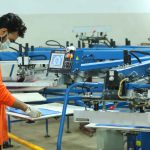
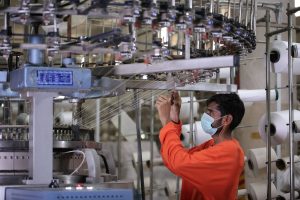
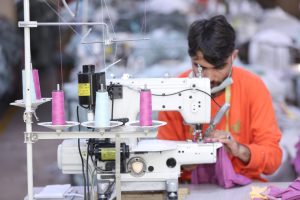
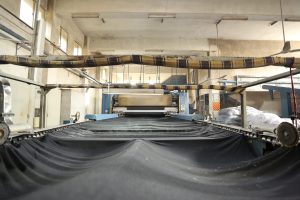
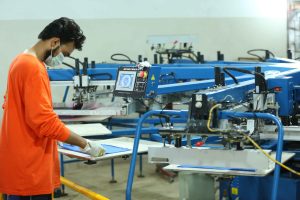
No comment yet, add your voice below!